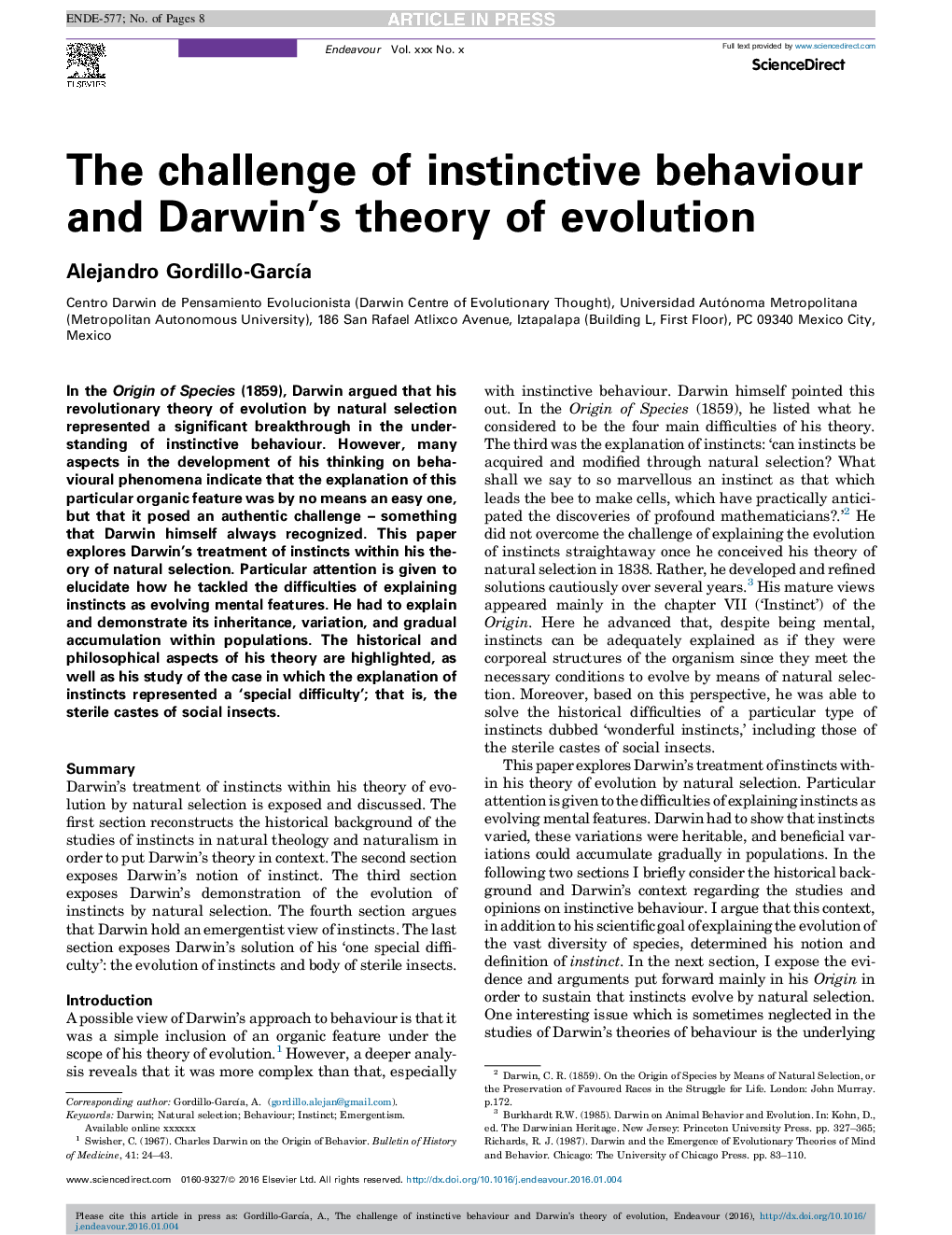| Article ID | Journal | Published Year | Pages | File Type |
|---|---|---|---|---|
| 10527887 | Endeavour | 2016 | 8 Pages |
Abstract
In the Origin of Species (1859), Darwin argued that his revolutionary theory of evolution by natural selection represented a significant breakthrough in the understanding of instinctive behaviour. However, many aspects in the development of his thinking on behavioural phenomena indicate that the explanation of this particular organic feature was by no means an easy one, but that it posed an authentic challenge - something that Darwin himself always recognized. This paper explores Darwin's treatment of instincts within his theory of natural selection. Particular attention is given to elucidate how he tackled the difficulties of explaining instincts as evolving mental features. He had to explain and demonstrate its inheritance, variation, and gradual accumulation within populations. The historical and philosophical aspects of his theory are highlighted, as well as his study of the case in which the explanation of instincts represented a 'special difficulty'; that is, the sterile castes of social insects.
Related Topics
Social Sciences and Humanities
Arts and Humanities
History
Authors
Alejandro Gordillo-GarcÃa,
